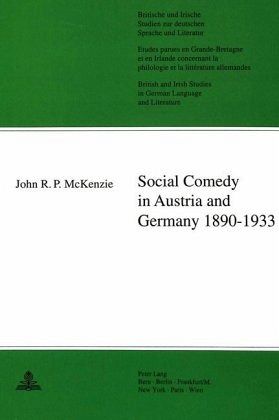Nicht lieferbar

Social Comedy in Austria and Germany 1890-1933
Reprint
Versandkostenfrei!
Nicht lieferbar
Social comedy in German-speaking Europe in the twentieth century is marked by a distinctively complex relationship between comic fiction and social and political context. The study examines a representative selection of important works by major German and Austrian playwrights, analysing the balance between comic convention and critical appraisal of the real world, and assesses the special contribution to the comic mode made by each of the seven writers represented; in particular, it attempts to define the writer's moral concerns in a period of unprecedented social and political change.



